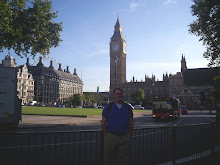Mann's theory is that Regan rebelled against both the realist school of foreign policy that President Richard Nixon and Henry Kissinger represented and the more hawkish school of foreign policy of the conservative wing of the Republican Party. Reagan rebelled against these schools of thought to see that ascension of Mikhail Gorbachev represented a fundamental change in the Soviet Union. Reagan's foresight allowed him to create the room necessary for Gorbachev to fundamentally change the Soviet Union. The changes wrought by Gorbachev are what brought the Cold War to an end.
This is a theory that I have read before but Mann's story details on how Reagan rebelled and came to point where he worked with Gorbachev to end the Cold War. Reagan's rebellion occurred during his second term and Mann uses four points in time during the second term to explain how Reagan played his part. The first point is a secret White House meeting between Presidents Reagan and Nixon that represents how Reagan broke out the prevailing thinking about the Cold War and saw that Gorbachev represented something new in the Soviet Union. The second point in the story is a series of private meetings Reagan held author Suzanne Massie. These meetings with Massie gave Reagan a view life for the common person in Russia. Reagan also used his relationship with Massie as a back channel to Soviet authorities. Mann's third point is Reagan's "tear down this wall speech" in Berlin. In the fourth section, Mann describes the two summit meetings between Reagan and Gorbachev in 1988.
Mann is determined to show that Reagan did not end the Cold Wa but that he created the room that allowed Gorbachev to change the Soviet system, which would lead to the end of the Cold War. I am still not a large fan of Reagan but I found myself respecting his ability and willingness to meet Gorbachev and break free of old thinking on foreign policy. I think there is a lesson to be learned about breaking free of conventional wisdom but sometimes I worry that our current leadership is too invested in making the conventional wisdom work. Mann's book is a good and thought provoking read that opened my eyes to the backstory of the one of the most formative political stories of my youth.

No comments:
Post a Comment